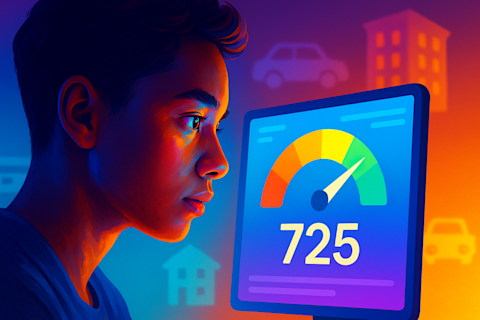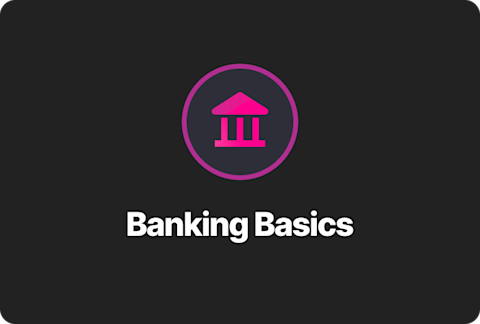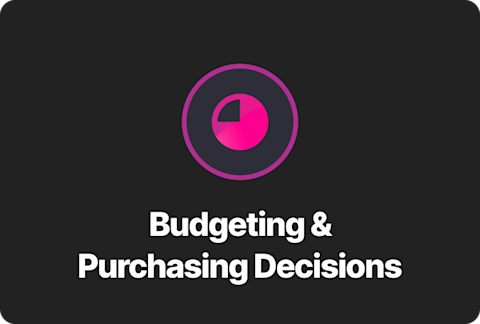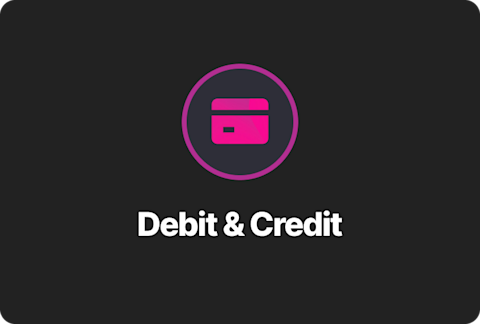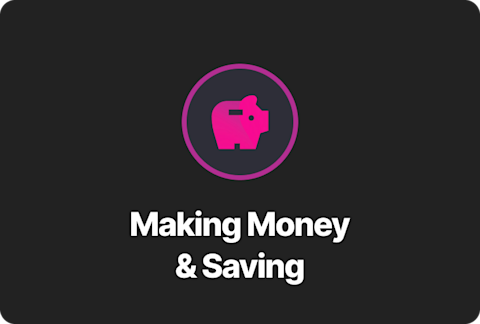Does Increasing Your Credit Limit Affect Your Credit Score?

You just got approved for a credit limit increase—or maybe you’re thinking about asking for one. 💳 But wait... does increasing your credit limit affect credit score? And if so, is it a good thing or could it backfire?
Here’s what’s really going on behind the scenes when your limit changes—and how it might impact your credit score in ways you didn’t expect.
How Credit Utilization Impacts Your Score
One of the biggest factors in your credit score is your credit utilization ratio. That’s the percentage of your available credit that you’re using at any given time.
Let’s say your limit is $1,000 and you spend $500—that’s 50% utilization, which is pretty high. Now say your limit goes up to $2,000 and you still spend $500. Your utilization just dropped to 25%, which is much better. 🎯
⚡ Quick math:
Before: $1,000 limit, $500 balance = 50% utilization
After: $2,000 limit, $500 balance = 25% utilization
Keeping your utilization under 30% (and ideally under 10%) is one of the best ways to boost your score quickly.
Does Increasing a Credit Card Limit Affect Credit Score?
So, does increasing a credit card limit affect credit score? It can—both short-term and long-term.
Here’s how it breaks down: If you ask for a credit limit increase, your issuer might run a hard inquiry—which can cause a minor drop of around 5–10 points, according to Experian. If the increase is automatic (some cards do this after a few months of on-time payments), there's no hard pull and no dip. In either case, if your new limit helps you lower your utilization, your score will likely improve over time.
💡 Pro tip: With a secured credit card to build credit like Step, your limit is tied to the money you deposit. While Step doesn't automatically increase your credit limit based on spending habits, it allows you to safely build credit without taking on debt or worrying about overspending.
What Happens If Your Credit Limit Increase Is Declined?
This one’s easy: does a declined credit limit increase request affect your credit score? Nope.
Being denied won’t hurt your score. The only risk is if the issuer does a hard pull during the process. If they do, you might see a short-lived drop—typically just a few points that bounce back within a couple months.
If you want better odds next time, focus on:
Keeping balances low on all your cards
Paying your bills on time, every time
Avoiding multiple requests in a short period—wait at least 6 months between attempts
Why Did My Credit Score Drop When My Credit Limit Increased?
You finally got the increase—and your score still dropped? That feels frustrating, but it might not be the limit that caused it.
Sometimes your issuer does a hard inquiry to approve the increase. Or maybe another account or balance changed at the same time. And don’t forget: your new limit might not have been reported yet, so the bureau still sees you as using more of your available credit than you actually are.
🎯 Reminder: a credit score drop when your credit limit increased is often less about the limit and more about what else was happening in your credit file at the same time.
Should You Request a Credit Limit Increase?
Requesting a higher limit can lower your utilization ratio and potentially give your score a bump. It also gives you more wiggle room for emergencies. But there are trade-offs. It might trigger a hard inquiry, and if you’re not careful, the extra limit could lead to overspending.
🧠 If you do get an increase, don’t treat it like a bonus. Keep your usage steady and track your spending. If your recent payment history isn’t great or your income’s changed, it might be smarter to wait a few months.
How Step Helps with Credit Building
Step offers a simple, safe way to start building credit—without needing a large credit limit or risking credit card debt.
As a credit building app, Step reports your activity to all three major credit bureaus, helping you build credit from everyday purchases. There’s no credit check to get started, and your spending is limited to the money in your account, so you’re never borrowing more than you can afford.
Instead of relying on traditional credit card behavior like chasing limit increases, Step helps you establish smart financial habits. You get the benefits of credit building—on-time payment reporting, responsible usage tracking—without the common pitfalls.
✨ Want to better understand how credit scores work? Check out this guide to understanding credit scores.
FAQs
Does increasing your credit limit help or hurt your credit? Usually helps—if you keep your spending the same. Lower utilization = higher score.
Can I request a credit limit increase without affecting my score? Sometimes. Ask your issuer if they’ll do a soft pull. That way, there’s no temporary hit.
Will my credit score drop if my request is denied? The denial itself? No. But if there was a hard pull, expect a small dip—usually no more than 5–10 points.
Why did my score drop even after my limit increased? Could be bad timing, other changes in your report, or a hard pull. Monitor your credit to find the real cause.
Final Thoughts — Credit Limits Can Help, If Used Right
A credit limit increase can be a powerful credit-building tool—but only if you use it wisely. Keep your spending steady, your utilization low, and your payments on time.
Want to build credit without all the guesswork? Download Step Credit Building App. It’s the smarter way to build credit from everyday spending—and it works even if you’re just getting started. 🙌


